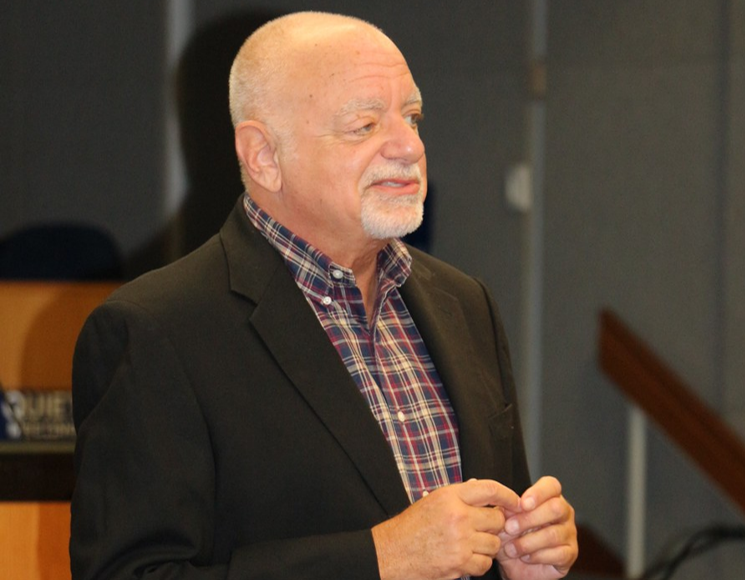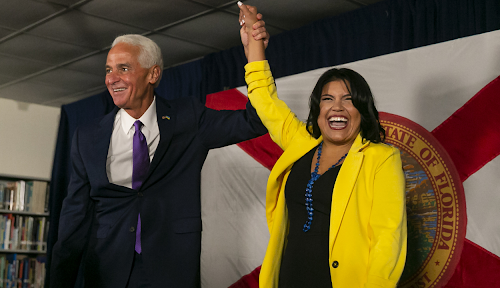Florida’s new Office of Election Crimes and Security continues to draw controversy, even with veteran public servant Peter Antonacci appointed its director.
While there’s little debate over Antonacci’s appointment, speculation over the purpose and scope of this new office has drawn all the fire. Since Gov. Ron DeSantis signed a bill last April creating the Office of Election Crimes and Security, little has been revealed beyond DeSantis’ initial press release.
Mixed reactions from both sides of the aisle cast a shadow of ambiguity over what the office’s official duties will entail, as the pendulum swings from concerns over preserving the sanctity of elections to worries of a possible misuse of power to execute a political agenda.
Mark Earley, Leon County Supervisor of Elections, told the Florida Political Review “a lot of pressure” is being put on the Legislature and other government agencies.
“It was implemented mostly as a reaction to an outcry from folks who, frankly, were concerned about a lot of fraud in 2020, which I think has been across the board disproven,” Earley said.
For many, Antonacci, 73, was not a surprising choice. He has spent a good part of his career serving as an asset for many former Florida governors, including Sen. Rick Scott and former Gov. Jeb Bush.
In 2018, DeSantis appointed Antonacci as interim Broward County Supervisor of Elections following Brenda Snipes’ removal.
“Pete turned around a national laughing stock Supervisor of Elections Office into an efficient, effective office in less than 24 months,” Nick Primrose, chair of the Florida Election Commission, said.
Operating out of the Florida Department of State, the office is notably trimmed down from earlier proposals. As Earley described, there was some back and forth in the recent legislative session over the Office’s budget, size and scope.
“The size of the force that was being proposed was, from our [Supervisors of Elections] perspective, much larger than needed given the amount of election fraud that us folks on the ground, who administer the laws at the local level at a very granular scale, see on a daily basis,” Earley said. “So, we advocated for some of those resources to be moved from the Office of Election Crimes and Security over to the Division of Elections.”
In terms of the final version of the bill to create this agency, Earley noted there was a positive resolution.
“It’s good that those two concerns were listened to, so it went from a roughly 52 member force to 15, with some additional resources over in FDLE,” Earley said.
As for the new office’s purpose, Mark Ard, director of external affairs for the Florida Department of State, said the Office of Election Crimes and Security will provide “necessary” resources to make sure voting is secure and perpetrators are prosecuted.
Ard said the Office is meant to support the framework already in place for dealing with election crimes and security.
“The Department of State has received lists and information from these groups that purport to identify issues with voter rolls or elections practices in Florida. We work hard to review all of that now, but simply have not had adequate resources or personnel to meet the demand,” Ard said. “Having trained personnel will allow us to quickly and efficiently review this information and promptly respond and either put allegations to rest, or, if appropriate, investigate.”
Much of the controversy surrounding this office is tied to unknowns regarding its scope and power. Some worry that it could be used as a political tool or to target mail-in voting and secure ballot intake stations, otherwise known as drop boxes.
“There [are] not a lot of checks against the powers of investigation for this new agency,” Earley said. “That’s another reason why I think Pete Antonacci was named as the director, especially the first one. I anticipate he will set a good precedent for further activity within that office.”
It is also important to consider the possible undue burdens that these investigations by the new office could place on the current framework in place to handle elections, especially local supervisor of elections offices.
“We’ve had lots of court discovery and a lot of public records requests as it is,” Earley said. “We’re already overwhelmed with that and it’s difficult to get our jobs done now with just the resources we have, and another layer of nonstop investigations could only harm voters’ ability to have their voices heard in government.”
Ultimately, the role the office will have is still developing.
With Florida being one of the few states to have an agency like the Office of Election Crimes and Security, it will be interesting to see if it becomes a fixture in years to come, or if it will meet an early end with Florida’s 2022 gubernatorial race around the corner.
Check out other recent articles from the Florida Political Review here.
Featured Image: Antonacci in 2017 when he served as Executive Director of the South Florida Water Management District. (Unmodified photo by SFWMD used under a Creative Commons license. https://bit.ly/3PI86uq)





